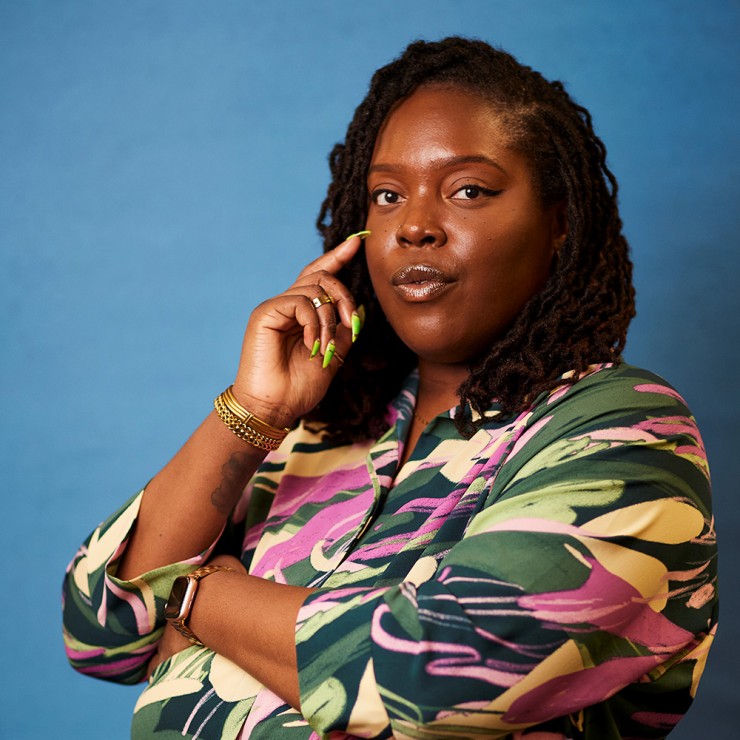‘Diversity’ was the central issue at the Edinburgh TV Festival this week.
Or rather, the central issue … again.
Those of us who have ‘done’ Edinburgh for years experienced a sense of deja vu. We’ve been here before. In 2008 with Pat Younge. 2014 with BSkyB’s Stuart Murphy. 2017 and the CDN’s Delivering Diversity, and of course 2018’s MacTaggart from Michaela Coel.
One could well understand the wariness – and weariness – of so many people from BAME backgrounds and other marginalised groups, at all the promises that ‘’things will change’’ post-George Floyd.
But as David Olusoga said in his sober – and sobering – MacTaggart there is some cause for ‘’hope’’. ‘’This time does feel different.’’
The most obvious manifestation is the pledge made by the major broadcasters to address serious shortfalls in how our industry treats freelancers, including tackling race and diversity.
The formation of the Coalition for Change – masterminded by Adeel Amini – is a promising step in the right direction. The coalition – involving the key broadcasters, Pact, Bectu and grassroots non-profit organisations like Share My Telly Job, the TV Collective, the Film and TV Charity and the TV Mindset – is aiming to add meat to the bones of the pledges over the next 18 months.
But questions remain. Olusoga himself warned, pre-Edinburgh, that it was vital the industry avoid repeating mistakes of the past. Will those at the top now take the time to understand what these are? Or will a desire to be seen to ‘’do something’’ mean replicating initiatives that have already been shown to have failed?
There are new mistakes in the offing too. Using closed, informal networks and platforms not designed for recruiting feels like a worryingly retrograde step.
Most in our industry believe – sincerely – that they are non-racist. Yet the reality is there is often a significant disconnect between perception and practice.
That’s why in our area – recruitment – we believe there are three key components to ensuring that good intentions are reflected in both good policies and good practice – and all are central to The Talent Manager’s USP.
1] Forward-thinking recruitment
It has been said time and time again that the key to addressing diversity is thinking proactively about people.
That means abandoning the last minute, knee-jerk callouts to friends, or friends of friends, to see who’s available, and instead requires producers to plan ahead, to find and keep track of interesting talent with a view to building creatively diverse, complementary teams.
This is at the heart of the TM’s ‘list’ system – and it is important not only in terms of sourcing diverse talent but also retaining them. If people from disadvantaged or marginalised groups are to survive with any longevity in TV, as Olusoga said, there needs to be forethought and forward-planning so that they can have some idea of where and when their next job opportunity may come. This is true not just for those from under-represented groups too: our industry invariably errs towards pigeon-holing people. To break out of that, and for freelancers to be able to grow creatively and professionally, needs recruiters to be better prepared, and not always to take the identikit option.
2] Diversity needs to be embedded in everyday practices
Three years ago, we built a suite of tools on the TM to help companies improve the diversity of their teams. In particular, a Diversity Search Engine and Diversity Reporting (so they could monitor who was in their talent networks.) The sad truth is that – until recently – engagement from recruiters has been patchy.
Nonetheless, the principle still holds – diverse talent is, first and foremost, talent. Finding, and keeping track of people from under-represented groups, should be embedded in any responsible company’s standard recruiting processes – not treated as an after-thought or gap-filling exercise.
3] Transparent and open recruitment
Again, it's become almost a cliché for people to call out the ‘coffee shop’ culture of recruiting through closed or private networks - including, just recently, the BBC’s director of content Charlotte Moore. Yet still it persists – online and off.
It is surely non-negotiable that all jobs should be published in a way that means they are visible to everyone and anyone, not just a select few?
Obviously, we think so – the TM is a genuinely open and transparent platform.
We’ve built tools so that recruiters are not swamped with inappropriate applications. But what is vital – both morally and legally - is that opportunities are advertised openly, so that anyone can know about them - an electrician looking to work as a film set spark, for example, or a theatre coordinator looking to move into TV. This is a truth that we should all hold as self-evident.


